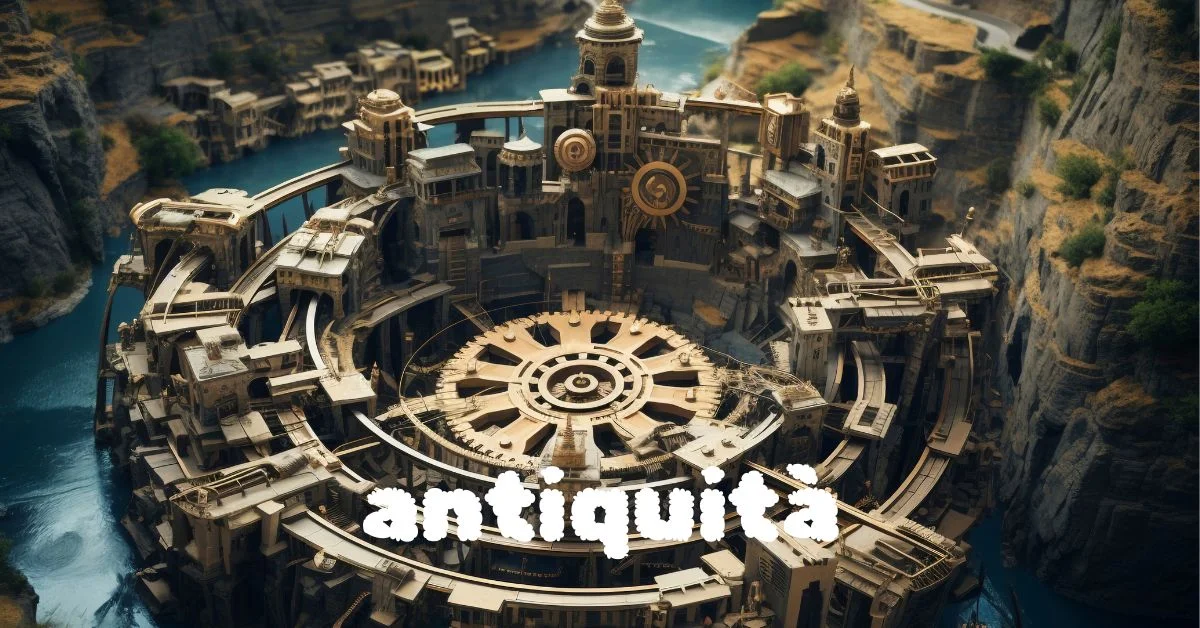Antiquità, the Italian term for antiquity, refers to a period in history that encompasses the earliest civilizations and cultures that laid the foundations for modern society. This era, spanning from the emergence of ancient civilizations to the fall of the Roman Empire, offers a rich tapestry of human achievement, art, philosophy, and architecture. Understanding antiquità not only sheds light on the origins of contemporary culture but also reveals the enduring legacy of these early societies.
The Dawn of Civilization
The concept of antiquità begins with the rise of early civilizations in the Near East, particularly in Mesopotamia around 3500 BCE. The Sumerians, Akkadians, Babylonians, and Assyrians were among the first to develop writing systems, complex urban centers, and sophisticated administrative practices. These innovations marked the beginning of recorded history and set the stage for future civilizations.
Ancient Egypt, another cornerstone of antiquità, flourished along the banks of the Nile River. The Egyptians are renowned for their monumental architecture, including the pyramids of Giza and the Sphinx. Their contributions to art, mathematics, and medicine have had a lasting impact on both their contemporaries and subsequent societies.
Classical Antiquity
The term “classical antiquity” is often used to describe the period encompassing ancient Greece and Rome. This era, spanning from roughly the 8th century BCE to the 5th century CE, is particularly significant due to its profound influence on Western culture.
Ancient Greece
Ancient Greece is celebrated for its advances in philosophy, science, and the arts. Thinkers like Socrates, Plato, and Aristotle laid the groundwork for Western philosophy and science. Greek mythology, epic poetry, and dramatic theater continue to captivate audiences today. Architectural marvels such as the Parthenon in Athens and the Temple of Zeus in Olympia stand as testaments to Greek ingenuity and artistic prowess.
The political innovations of ancient Greece, particularly the concept of democracy, have had a lasting impact on political thought and practice. The city-state of Athens, with its early experiments in democratic governance, serves as a historical model for modern democratic institutions.
Ancient Rome
The Roman Empire, which succeeded Greece as the dominant power in the Mediterranean, further advanced many aspects of culture and governance. The Romans are renowned for their engineering feats, including the construction of roads, aqueducts, and monumental buildings like the Colosseum and the Pantheon.
Roman law and political systems have had a lasting influence on Western legal and governmental structures. The Roman Republic’s complex system of checks and balances and the Empire’s administrative efficiency set standards for future civilizations.
The Fall of Antiquity
The fall of the Western Roman Empire in 476 CE marks the traditional end of antiquity and the beginning of the Middle Ages. This transition was not abrupt but rather a gradual process influenced by a combination of internal strife, economic troubles, and external pressures from barbarian invasions.
Despite the decline of the Western Roman Empire, the legacy of antiquità lived on through the Byzantine Empire in the East, which preserved and transmitted much of the knowledge and culture of the classical world.
Legacy and Influence
The influence of antiquità extends far beyond its historical timeframe. The Renaissance, a period of renewed interest in classical antiquity, profoundly shaped modern Western culture. The revival of classical ideals in art, literature, and philosophy helped lay the intellectual and artistic foundations of the modern world.
In contemporary times, the study of antiquità provides invaluable insights into the origins of Western civilization. Archaeology, historical scholarship, and classical studies continue to uncover new aspects of ancient societies, offering fresh perspectives on their achievements and their relevance to our own time.
Conclusion
Antiquità represents a period of remarkable achievements and profound influence on human history. From the early civilizations of Mesopotamia and Egypt to the classical wonders of Greece and Rome, the legacy of antiquità continues to shape our world. By exploring this rich historical tapestry, we gain a deeper appreciation for the origins of many aspects of modern life and the enduring impact of these ancient cultures.








